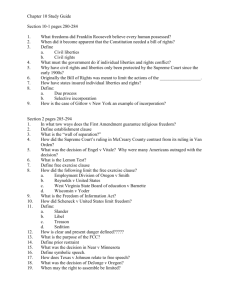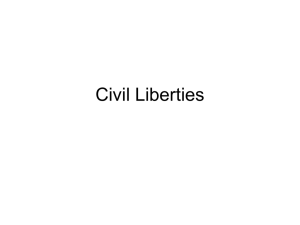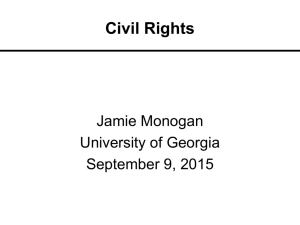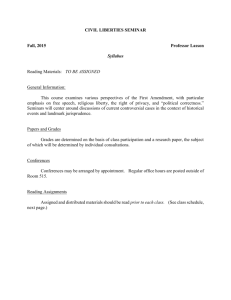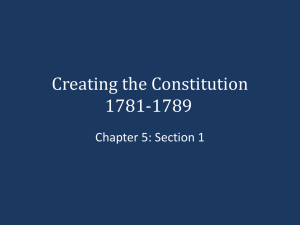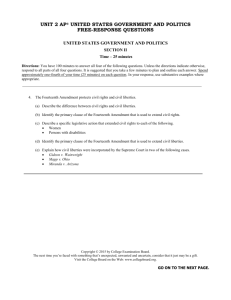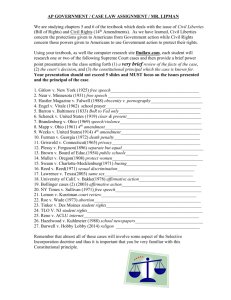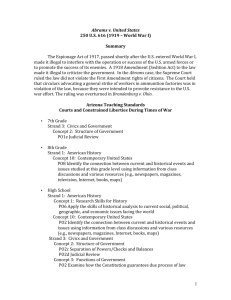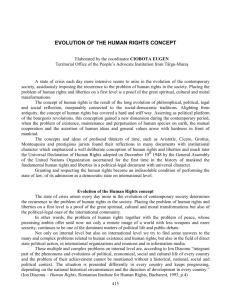Massachusetts Body of Liberties Excerpts, 1641
advertisement
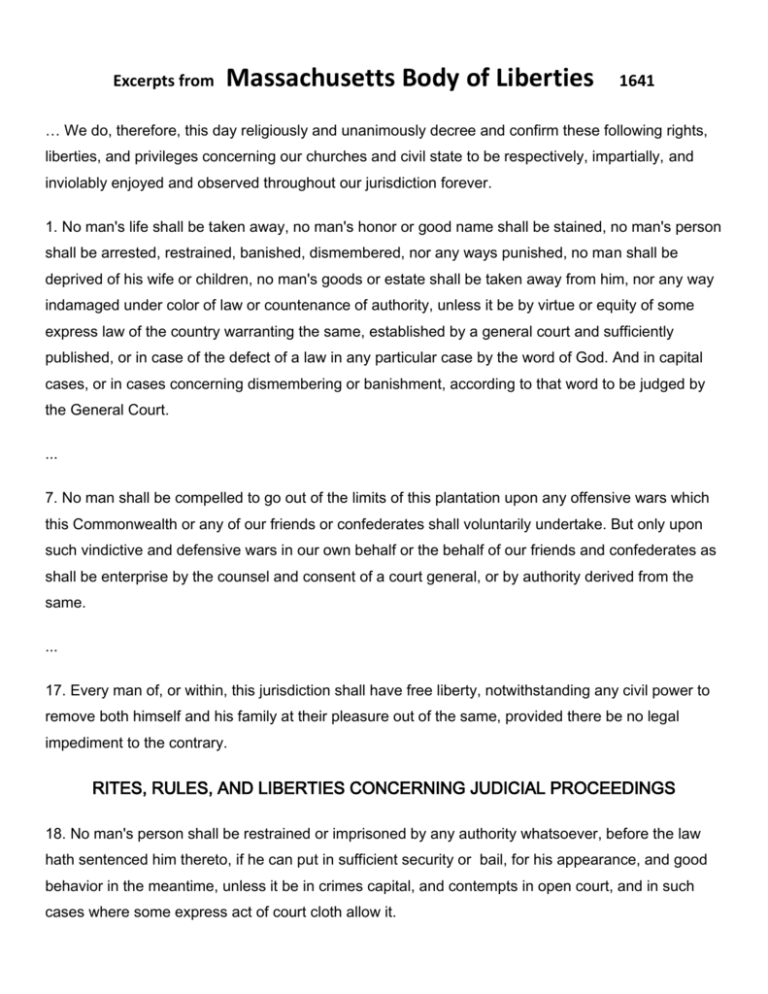
Excerpts from Massachusetts Body of Liberties 1641 … We do, therefore, this day religiously and unanimously decree and confirm these following rights, liberties, and privileges concerning our churches and civil state to be respectively, impartially, and inviolably enjoyed and observed throughout our jurisdiction forever. 1. No man's life shall be taken away, no man's honor or good name shall be stained, no man's person shall be arrested, restrained, banished, dismembered, nor any ways punished, no man shall be deprived of his wife or children, no man's goods or estate shall be taken away from him, nor any way indamaged under color of law or countenance of authority, unless it be by virtue or equity of some express law of the country warranting the same, established by a general court and sufficiently published, or in case of the defect of a law in any particular case by the word of God. And in capital cases, or in cases concerning dismembering or banishment, according to that word to be judged by the General Court. ... 7. No man shall be compelled to go out of the limits of this plantation upon any offensive wars which this Commonwealth or any of our friends or confederates shall voluntarily undertake. But only upon such vindictive and defensive wars in our own behalf or the behalf of our friends and confederates as shall be enterprise by the counsel and consent of a court general, or by authority derived from the same. ... 17. Every man of, or within, this jurisdiction shall have free liberty, notwithstanding any civil power to remove both himself and his family at their pleasure out of the same, provided there be no legal impediment to the contrary. RITES, RULES, AND LIBERTIES CONCERNING JUDICIAL PROCEEDINGS 18. No man's person shall be restrained or imprisoned by any authority whatsoever, before the law hath sentenced him thereto, if he can put in sufficient security or bail, for his appearance, and good behavior in the meantime, unless it be in crimes capital, and contempts in open court, and in such cases where some express act of court cloth allow it. ... 42. No man shall be twice sentenced by civil justice for one and the same crime, offense, or trespass. 44. No man condemned to die shall be put to death within four days next after his condemnation, unless the court see special cause to the contrary, or in case of martial law, nor shall the body of any man so put to death be unburied twelve hours, unless it be in case of anatomy. 45. No man shall be forced by torture to confess any crime against himself nor any other, unless it be in some capital case where he is first fully convicted by clear and sufficient evidence to be guilty, after which if the cause be of that nature, that it is very apparent there be other conspirators, or confederates with him, then he may be tortured, yet not with such tortures as be barbarous and inhumane. 46. For bodily punishments we allow amongst us none that are inhumane, barbarous, or cruel. ... 70. All freemen called to give any advice, vote, verdict, or sentence in any court, counsel, or civil assembly shall have full freedom to do it according to their true judgments and consciences, so it be done orderly and inoffensively for the manner. OF THE BRUTE CREATURE 92. No man shall exercise any tyranny or cruelty toward any brute creature which are usually kept for man's use. ... CAPITAL LAWS If any man after legal conviction shall have or worship any other god, but the Lord God, he shall be put to death. If any man or woman be a witch (that is, hath or consulteth with a familiar spirit), they shall be put to death. …98. Lastly, because our duty and desire is to do nothing suddenly which fundamentally concern us, we decree that these rights and liberties shall be audibly read and deliberately weighed at every General Court that shall be held, within three years next ensuing, and such of them as shall not be altered or repealed they shall stand so ratified, that no man shall infringe them without due punishment. ...1. "Massachusetts Body of Liberties," The Colonial Laws of Massachusetts. . ., ed.. W. H. Whitmore (Boston, 1890), pp. 33, 35, 37, 43, 47, 49, 51, 53. 55, 57, 61.

